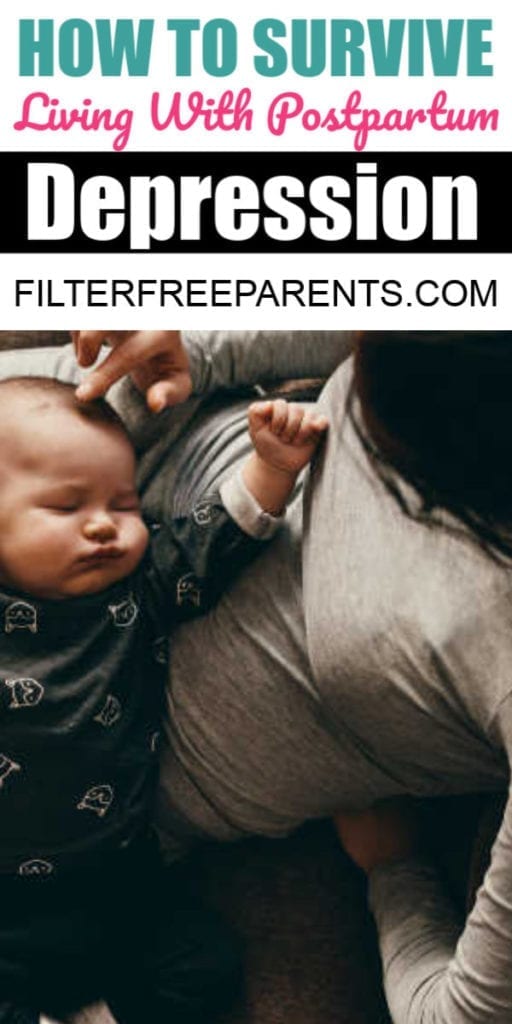Recently, a young mom asked me how I got through postpartum depression.
My answer was this:
“Medication, therapy, lots of support, telling my truths. It was a process for me and for me, it’s never been completely over or finished. Depression for me is a different animal now that I’m learning to live with.”
I often think about what I could have heard through the din of my own suffering as a new mom.
I wonder what would have broken through my severe fear and the agony of my life changing to fully and completely in what felt like the blink of an eye. I can’t ever know, not really, not fully, what would have helped.
But I want to try.
I want to try to provide a guide for new moms, for any moms, who are suffering.
Shame and secrecy are not the way to heal
I am not a medical professional, but I hope to help new moms and those suffering with postpartum depression – no matter how long after you became a mother – to know that they are not monsters, that they are not alone, and that shame and secrecy are not paths to healing.
If you are crying all the time after birth/becoming a mother, tell someone you trust.

If you feel detached from your baby, even though you might care about him/her, tell someone you trust.
If you feel like a bad mother, a bad person, a monster for not feeling the “right” way about being a mother or having a child after you become a mother, tell someone you trust.
If you feel like your life is over and you will never be happy/have fun/laugh again, tell someone you trust.
If nothing is bringing you joy, tell someone you trust.
If you don’t want to be around anyone because you can’t perform the “happy mom” role, tell someone you trust.
If you have fantasies of death, leaving your family, hurting yourself, hurting your baby, being hospitalized, or finding some way “out” of your life, tell someone you trust.
If something is very hard, such as breastfeeding, birth trauma recovery, issues with your baby’s health, any complication that is on top of your new role as a mother, tell someone you trust.
If you constantly feel underwater or are very angry or sad, tell someone you trust.
If trying to do something seemingly “simple” with your child leaves you in tears, tell someone you trust.
The young woman who contacted me made the point that it is so hard to find someone who understands what she is going through. And she’s right. Not because we are few and far between. But because we are shamed into silence.
We are taught to think of ourselves as bad or deficient or defective or dysfunctional mothers and women. We are not. We are just as much mothers as anyone else.
We are just as human, just as caring, just as loving, just as nurturing.
Becoming a mother is a life-changing and disorienting process.
For some of us that means that we get flooded with feel-good hormones and happiness. For some of us it means that we are welcomed at the gates of hell.
Regardless of how your journey begins, we can all walk in the beauty that is motherhood, while slogging through the shit that can also be motherhood.
We don’t have to pretend that we are okay to be good mothers.
We have to ask for and get the help we need to be good mothers.

All mothers need help.
All people need the love and support of others.
Let’s reimagine the beginnings of motherhood, and our individual journeys along that path, as full of possibilities and nurturance for mothers as well as their children.











